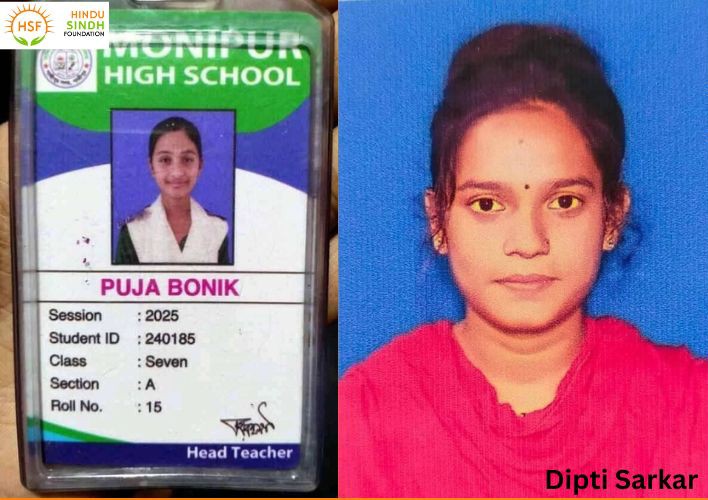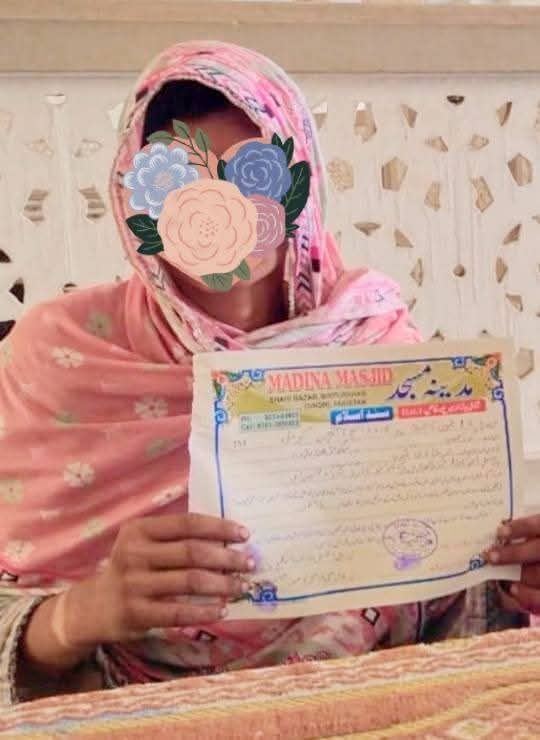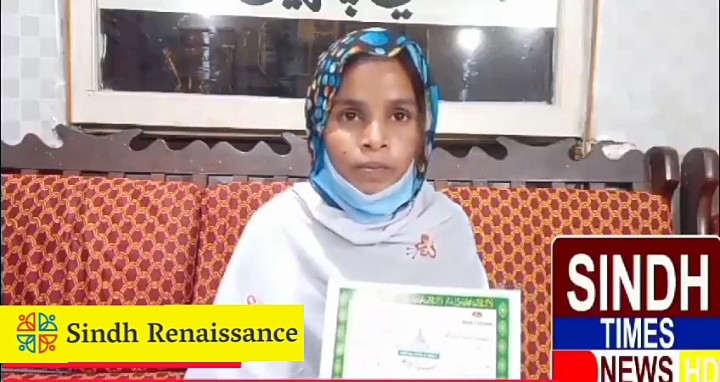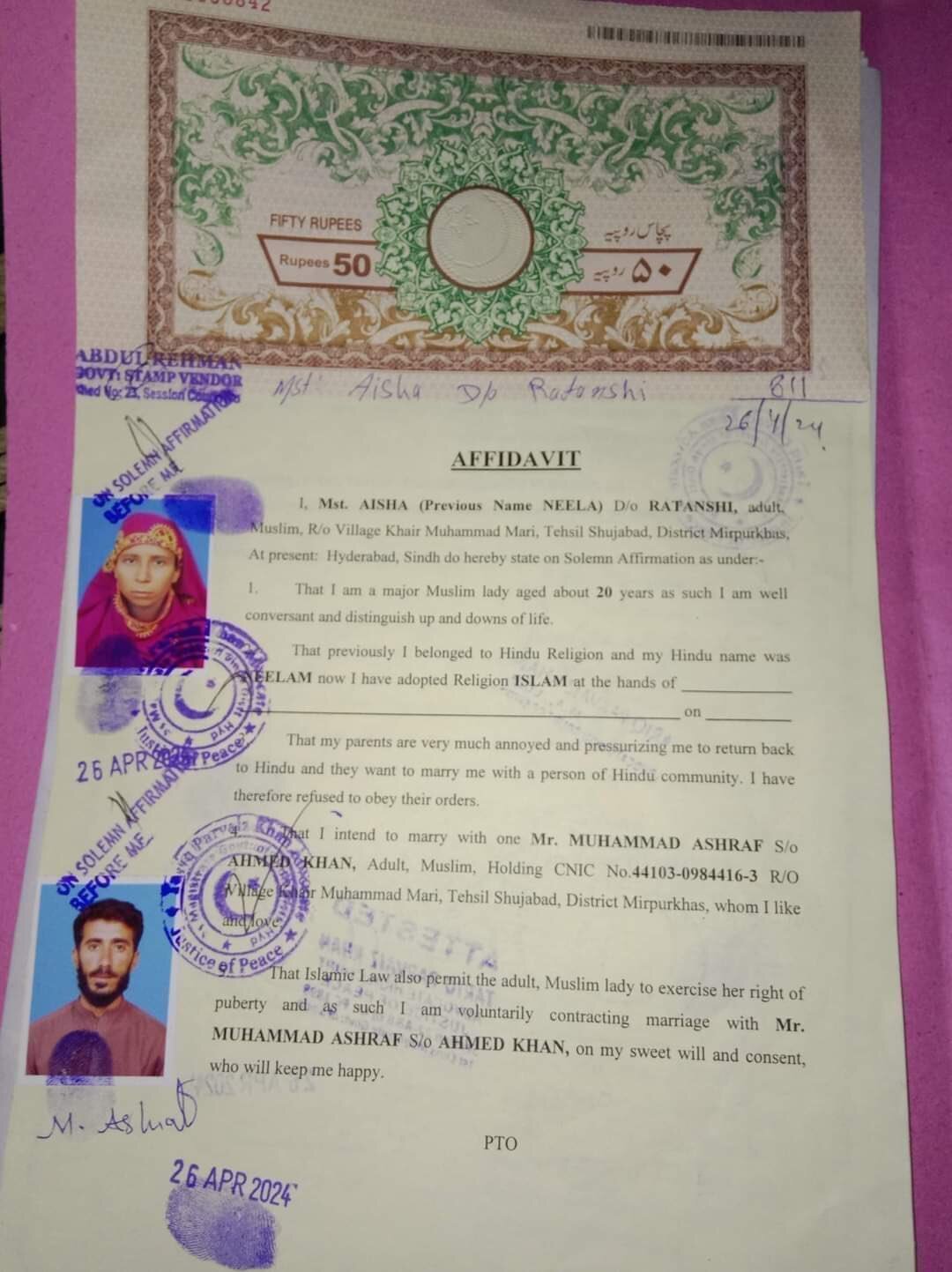In recent years, human rights organizations and minority advocacy groups have raised alarms over an increase in targeted violence and discrimination against the Hindu community in Bangladesh. Reports of temple demolitions, attacks on homes and businesses, forced conversions, and abductions have created a climate of fear and uncertainty—particularly for Hindu women and girls.
The situation has become even more concerning with the recent disappearance of two Hindu schoolgirls in separate incidents, adding to what activists describe as a pattern of intimidation and marginalization of minorities.
Two Hindu Girls Reported Missing
On August 5, 13-year-old Pooja Bonik, a student of Class 7 at Monipur High School in Hotapara, Gazipur, went missing around 4 PM along with two other girls. As of this report, their whereabouts remain unknown. Local authorities have been informed, but family members say they are still awaiting meaningful action.
In a separate incident, Dipti Sarkar, a Hindu girl from Paikgacha in Khulna district, was reported missing earlier this week. A missing persons diary has been officially filed at the local police station. According to the family, Dipti had been facing repeated harassment from local Muslim youths over the past few months, and they fear this may be linked to her disappearance.
Community leaders and rights advocates are urging the government to take swift and transparent action to locate the missing girls and investigate the circumstances surrounding their cases.
Pattern of Persecution?
Over the last two years, the Hindu community—Bangladesh’s largest religious minority—has reported increasing incidents of targeted violence. Hindu temples have been vandalized or destroyed in multiple regions, and dozens of homes and businesses have been looted or burned during communal unrest. Women and girls, in particular, have become frequent targets of abduction and coercion, according to rights groups.
Despite constitutional guarantees of religious freedom, critics say enforcement remains weak and political will is lacking when it comes to protecting minorities. “We are citizens of this country, yet we live in fear every day,” said a Hindu community organizer in Dhaka who asked not to be named. “When our daughters go missing, it’s not just a family tragedy — it’s a failure of the system.”
Silence from the International Community
Despite repeated appeals from civil society and minority groups, international institutions such as the United Nations Human Rights Council have been notably silent on the worsening situation in Bangladesh. The lack of external pressure, some say, has contributed to a sense of impunity.
“We are calling on the UN and other international bodies to speak up. Silence is complicity,” said a representative from a Dhaka-based human rights NGO. “Protecting minority communities is not optional — it’s a test of Bangladesh’s commitment to democracy and pluralism.”
As the families of Pooja Bonik and Dipti Sarkar await answers, calls are growing louder for not just justice in these cases, but for a comprehensive strategy to ensure the safety, dignity, and rights of all minorities in Bangladesh.
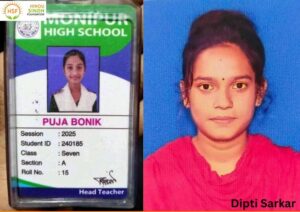
For more updates and detailed coverage of this case and other issues affecting the Hindu and Sindhi communities in Sindh, Pakistan, stay tuned to Sindh Renaissance.



